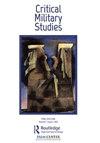暴力的合法性:军外合法性与军内合法性
Q1 Arts and Humanities
引用次数: 0
摘要
摘要本文是出于概念动机。通过借鉴美国和以色列军方的案例,它旨在证明军事暴力存在两个独立的合法性体系——军外和军内——并绘制它们之间的差距。它概念化了暴力的合法性,然后绘制了两种制度之间产生差距的七个条件,如下:军事文化的独特性、军队在多大程度上不反映社会、战地指挥部不断扩大的即兴创作和解释、模棱两可的政治指示、军队利用合法性争端的程度,军队的抵抗,以及历时性的合法性体系。这些差距的出现更有可能表现为文官控制的削弱和军事等级制度的瓦解。本文章由计算机程序翻译,如有差异,请以英文原文为准。
Legitimacy of violence: extra-military versus intra-military legitimacy
ABSTRACT This article is conceptually motivated. By drawing on cases from the U.S. and Israeli militaries, it aims at demonstrating the existence of two separate systems of legitimacy of military violence – extra-military and intra-military – and mapping the gaps between them. It conceptualizes the legitimacy of violence and then maps seven conditions under which gaps are created between the two systems, as follows: the uniqueness of military culture, the extent to which the military does not mirror society, field command’s broadening improvisation and interpretation, ambiguous political directives, the extent to which the military leverages a legitimacy dispute, troops’ resistance, and the diachronic systems of legitimacy. The appearance of these gaps is more likely to present with weakening of civilian control and the break-up of military hierarchy.
求助全文
通过发布文献求助,成功后即可免费获取论文全文。
去求助
来源期刊

Critical Military Studies
Arts and Humanities-History
CiteScore
1.90
自引率
0.00%
发文量
20
期刊介绍:
Critical Military Studies provides a rigorous, innovative platform for interdisciplinary debate on the operation of military power. It encourages the interrogation and destabilization of often taken-for-granted categories related to the military, militarism and militarization. It especially welcomes original thinking on contradictions and tensions central to the ways in which military institutions and military power work, how such tensions are reproduced within different societies and geopolitical arenas, and within and beyond academic discourse. Contributions on experiences of militarization among groups and individuals, and in hitherto underexplored, perhaps even seemingly ‘non-military’ settings are also encouraged. All submitted manuscripts are subject to initial appraisal by the Editor, and, if found suitable for further consideration, to double-blind peer review by independent, anonymous expert referees. The Journal also includes a non-peer reviewed section, Encounters, showcasing multidisciplinary forms of critique such as film and photography, and engaging with policy debates and activism.
 求助内容:
求助内容: 应助结果提醒方式:
应助结果提醒方式:


